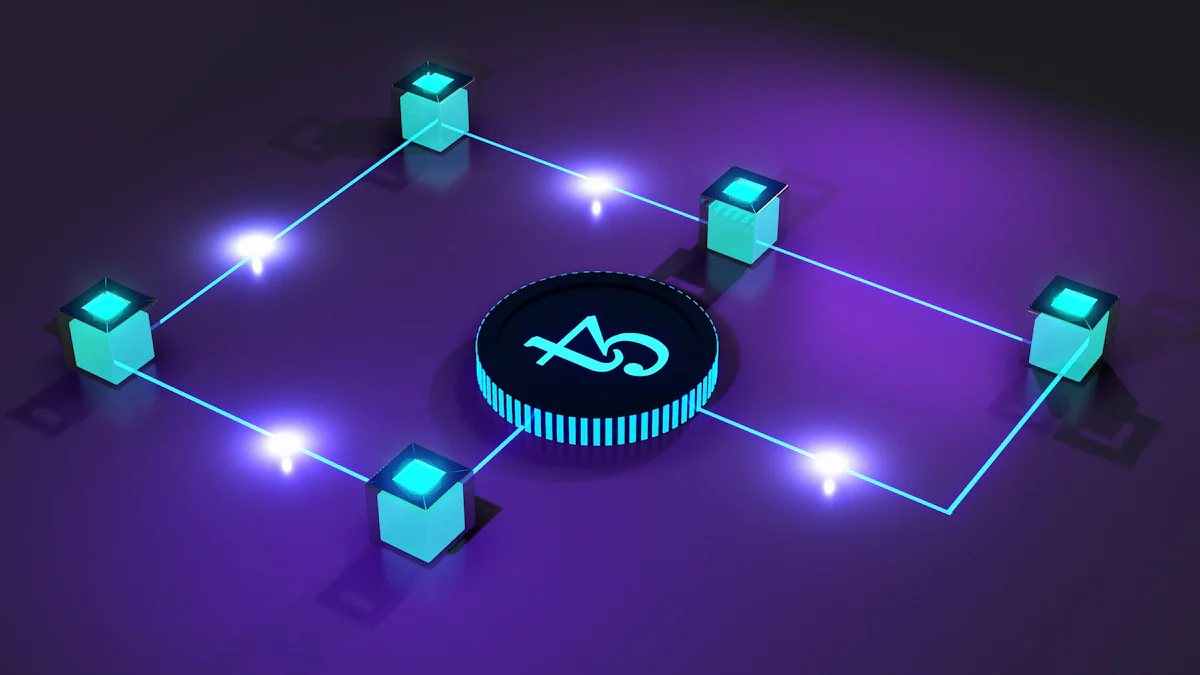2024 Guide to Ethereum Smart Contract Decentralized Exchanges

Understanding Ethereum Contract Basics
Ethereum smart contracts represent self-executing agreements where the terms are directly encoded into the contract. These contracts operate on the Ethereum Virtual Machine (EVM), which powers the execution of smart contracts on the Ethereum blockchain. By leveraging Ethereum contracts, decentralized applications (dApps) can be developed and deployed on the blockchain, enabling a wide range of innovative use cases and functionalities.
Ethereum Smart Contract Fundamentals
Ethereum Smart Contract Basics
Ethereum smart contracts are developed using Solidity, a programming language specifically designed for creating smart contracts on the Ethereum platform. This language allows developers to define the logic and terms of the contract in a way that is executable on the Ethereum blockchain. Additionally, the deployment of smart contracts on the Ethereum blockchain necessitates gas fees to execute the code, which serves as an incentive for miners to include the transactions in blocks.
Smart Contract Security
The security of Ethereum smart contracts is paramount as vulnerabilities can lead to significant financial losses and exploitation. Therefore, auditing and testing smart contracts are essential processes to ensure their security and functionality. By conducting thorough audits and testing procedures, developers can identify and rectify potential security loopholes before deploying the smart contracts into production environments.
Note: The utilization of Solidity for developing Ethereum smart contracts ensures that the terms of the contract are efficiently executed on the Ethereum blockchain.
Ethereum Smart Contract Interaction with DEXs
Decentralized exchanges (DEXs) rely on Ethereum smart contracts to facilitate the seamless execution of trades and transactions in a trustless and secure environment. The integration of smart contracts with DEXs automates the process of trading assets, eliminating the need for intermediaries and providing users with greater control over their funds.
Decentralized Exchange Integration
Smart contracts play a pivotal role in automating trades and transactions on decentralized exchanges. By leveraging Ethereum smart contracts, DEXs ensure that transactions are executed according to predefined terms without the involvement of centralized entities.
This integration not only enhances the efficiency of trading but also contributes to the overall security and transparency of transactions within decentralized exchange platforms.
Liquidity Pools and Automated Market Makers
Ethereum smart contracts power liquidity pools, enabling users to trade assets directly from their wallets while contributing to the liquidity of the decentralized exchange. These pools are governed by smart contracts, ensuring that trades occur seamlessly and without reliance on traditional order books.
Automated Market Makers (AMM) leverage smart contracts to enable swift and efficient token swaps within decentralized exchanges, further enhancing the accessibility and usability of these platforms.
By harnessing Ethereum smart contract capabilities, DEXs provide a robust infrastructure for peer-to-peer trading while maintaining high levels of security and user autonomy.
Monitoring Ethereum Smart Contracts
Continuous monitoring of Ethereum smart contracts is essential to detect potential vulnerabilities and security risks. As the landscape of cybersecurity evolves, staying vigilant in identifying and addressing any weaknesses in smart contract code becomes increasingly crucial. Tools such as Etherscan and Truffle offer developers valuable insights into the behavior and performance of Ethereum smart contracts, enabling them to proactively manage and enhance the security of their contracts.
Implementing upgradeable smart contracts is a proactive strategy for mitigating risks associated with potential vulnerabilities. This approach allows for the modification of contract logic to address any identified weaknesses or security gaps. Additionally, auditing and formal verification processes play a pivotal role in ensuring the reliability and security of Ethereum smart contracts. By subjecting the code to rigorous audits and verification, developers can significantly reduce the likelihood of exploitation or financial losses stemming from vulnerabilities within their smart contracts.
These risk mitigation strategies are fundamental components of maintaining the integrity and security of Ethereum smart contracts within decentralized exchanges.
Decentralized Exchanges Operation
User Experience on DEXs
Decentralized exchanges (DEXs) offer users a high degree of autonomy and control over their funds, eliminating the need for intermediaries commonly found in centralized exchanges. This user-centric approach empowers individuals to directly manage their assets and engage in trading activities without relying on third-party entities. Furthermore, the permissionless nature of DEXs ensures seamless and open access to trading and liquidity provision, fostering an inclusive environment for participants in the decentralized exchange ecosystem.
Challenges and Innovations
The realm of decentralized exchanges presents ongoing challenges and opportunities for innovation. One such challenge is scalability, as DEXs strive to accommodate a growing user base while maintaining efficiency and speed in transaction processing. Additionally, enhancing user experience remains a focal point for innovation within the decentralized exchange space, aiming to provide intuitive interfaces and streamlined processes for traders. In addressing these challenges, advancements such as Layer 2 solutions and cross-chain interoperability are being developed to overcome the limitations of current DEX infrastructure. These innovations seek to optimize transaction throughput and expand the interoperability of different blockchain networks, ultimately enhancing the overall functionality and accessibility of decentralized exchanges.
The Role of Ethereum Contract in DEXs
Ethereum smart contracts play a pivotal role in the operation of decentralized exchanges (DEXs), serving as the backbone for automated and secure trading. By leveraging Ethereum smart contracts, DEXs can facilitate trustless transactions, providing users with greater control over their assets while ensuring the integrity and transparency of trades. Continuous monitoring and robust security measures are essential to safeguard the functionality and reliability of Ethereum smart contracts within DEXs, contributing to the overall stability of decentralized finance (DeFi) ecosystems.
In conclusion, the evolution of Ethereum smart contracts and DEX technology is poised to shape the future of decentralized finance, driving innovation and expanding opportunities for secure and efficient peer-to-peer trading on blockchain networks.
